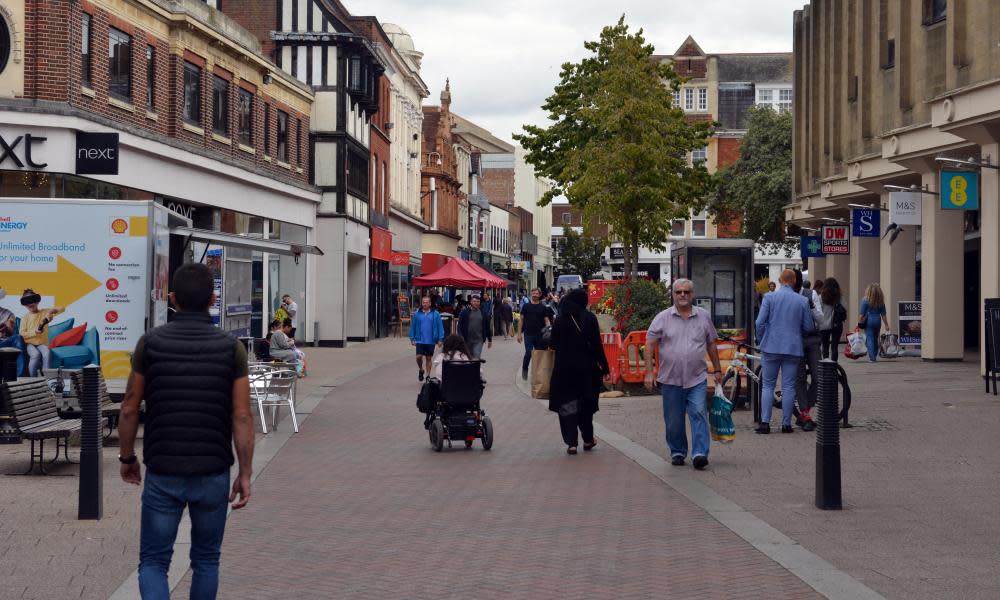Bemused Bedford shrugs off arrival of Indian Covid variant

Watching the bustle of shoppers outside the DIY superstore on Bedford’s London Road, it was hard to grasp that it was the frontline in the UK’s evolving battle against the variant of Covid-19 that was first detected in India.
This part of town had recorded the biggest rise in Covid cases in Bedford, itself one of a handful of hotspots in the UK where the variant has gained a foothold.
Rates of growth in the Bedford area of Kingsbrook have been conspicuously high. On 1 May reports indicate it had registered 0-2 Covid cases per 100,000 people. A week later, this had risen to 157, effectively taking this area of the town back to levels last registered in November, at the start of the second lockdown.
Yet the mood among shoppers outside Kingsbrook’s vast B&M home store was largely ambivalent. If the arrival of the new variant, B.1.617.2 was meant to sow panic on the streets of the county town, it had failed.
“Scared? No, not me. I’ll be OK,” said English teacher Tamika Da-Conceicao, adding that she had caught Covid over Christmas and felt confident the resultant antibodies would protect her. “But I’ll still be cautious for others because some people can get quite ill,” she said.
Nebin Thomas, 32, a nurse at Bedford’s nearby hospital, said he intended to continue living the same way despite the arrival of the Indian variant, but warned that others might need to be more careful. “I know it’s here, and I will continue to be cautious but the elderly and vulnerable might need to be more careful.”
Nearby, at furnishings retailer Dunelm, staff said customer numbers were back to pre-pandemic levels. Traffic, too. Vacant parking spaces were hard to find in the store’s large car park.
Cases are increasing across the whole town, not just the Kingsbrook area. Bedford borough council has said that the rate of Covid infections per 100,000 people more than doubled from 39.8 to 84.3 in a week.
On Thursday, public health officials discussed the disquieting fact that the majority of the identified Indian variant cases were “not travel-related” and may instead have been spread by people socialising.
The following day, the council called for all residents aged 16 and over to be vaccinated. With restrictions in England due to be eased further on Monday, officials admitted that Bedford had reached “a precarious point”.
Back in Kingsbrook, inside the Golden Fish Bar, staff member Adam Gorbuz said the arrival of the Indian variant had not affected the behaviour of any of his customers.
“Everybody’s carrying on as normal, just trying to carry on with their lives. I don’t think people care too much about it, to be honest,” he said.
A customer in his 50s entered and Gorbuz asked him what he thought of Kingsbrook’s latest Covid developments. The man shrugged and ordered his “usual”. No one seemed to be worried.
Gesturing at the bumper-to-bumper traffic on London Road while pushing her granddaughter in a pink pram, Vicky Spencer said: “It’s back to normal. People have learned to live with the virus. Looking at this, it’s like the virus is not real.”
Even those classified as vulnerable didn’t seem perturbed. An ambulance driver – who didn’t want to be named – who was asthmatic and had had his spleen removed, seemed relaxed about the arrival of B.1.617.2.
“We still don’t know how bad it is. It’s all speculation at the moment, and most of what the government says I take with a pinch of salt. How bad could it be?”

 Yahoo News
Yahoo News 
